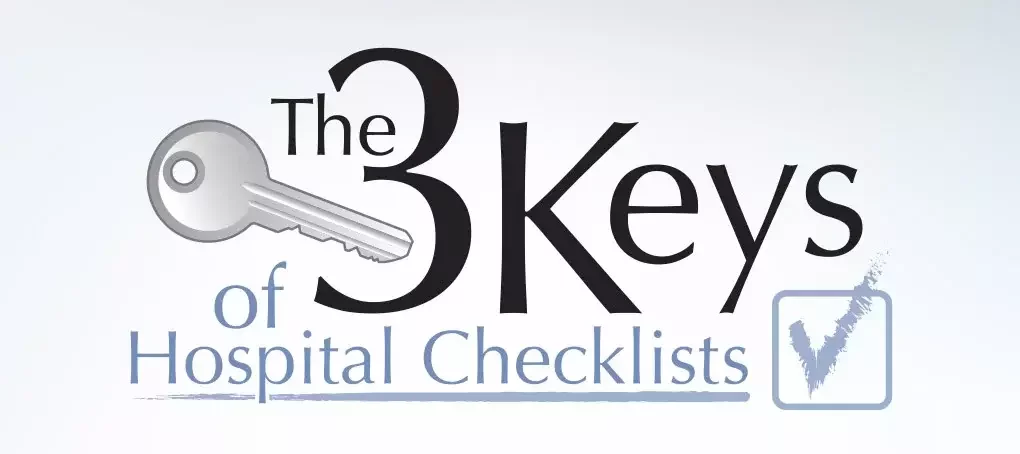
Checklists are a vital tool in improving healthcare safety and accountability.
At the same time, even the best system of self-regulation depends on the participation of the individuals using it. In order to aggregate and prioritize the data gathered by the system, administrators must know that the front-line workers entering the data are doing so accurately. (1)
Readiness Rounds recognizes the importance of vigilance in scrutinizing real-time data, both in achieving optimal outcomes for our clients and for our ability to determine and maintain our own best practices.
The following three keys to making the best use of hospital checklists come from direct, extensive experience in the field.
Within a healthcare organization, three key factors must be in place if a self-regulatory system is to function efficiently. The first two elements help ensure that the people submitting data to the system will do so accurately. The third concerns the way in which administrators handle the data once it has been collected. (2)
The 3 Keys to Effective Hospital Checklists
Key #1. It’s Not About Getting a High Score
A culture of safety must guard against the very natural human desire to “get a good grade.” Although it is important to recognize those individuals and departments that are consistently high-performing, administrators must resist creating a culture that encourages people to “spin” or alter data to present their own performance as being better than it really is. Administrators must also be willing to apply special scrutiny to departments that report at or near 100% accuracy.
Such numbers could be a red flag, suggesting that the data is idealized, not realized. The goal of a culture of safety is, of course, to score 100% on every checklist. Pragmatic administrators, however, recognize that this goal is unlikely to be reached even on a single checklist, except on very rare occasions. (3)
Key #2. Approach every observation as if it has failed
Those who interpret the data generated by checklists cannot assume that all data in the system is reliable. Such an assumption can be dangerously misleading. Even in the most highly developed culture of safety and teamwork, administrators must be willing to look carefully at the input they receive. Ideally, all aspects of data collection and aggregation should be reviewed independently by several safety team members on an ongoing basis.
Key #3. Celebrate Failures
The flip side of the first key, is that within a safety culture, it is critical that failures and shortcomings be treated sources of valuable feedback for improvement. Employees must feel safe from reprisal in reporting problems and adverse events and must know that their concerns will be taken seriously. Administrators must create an atmosphere in which failures generate cooperative problem-solving rather than punitive measures. Only in such an environment will individual workers be motivated to report data accurately, especially when the data illuminates a failure to meet expectations.
By creating a culture in which failures are seen as opportunities to improve, and the goal of 100% accuracy is seen as a process, not a requirement, organizations can minimize the motivation for individuals to idealize the data they submit. In addition, persistent scrutiny of all aspects of the data gathering process further ensures accuracy in reporting and planning and thus promotes continuous process improvement.
